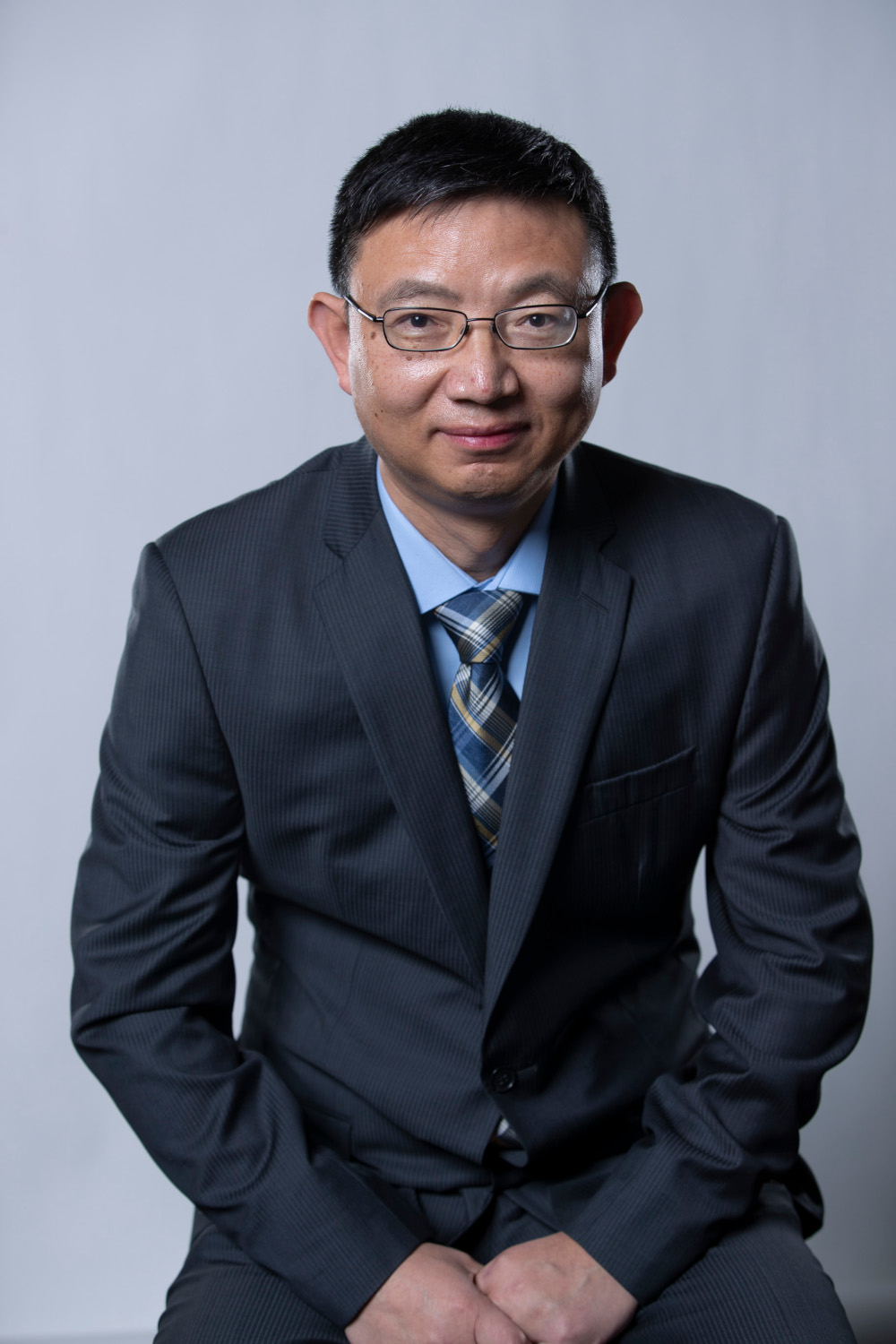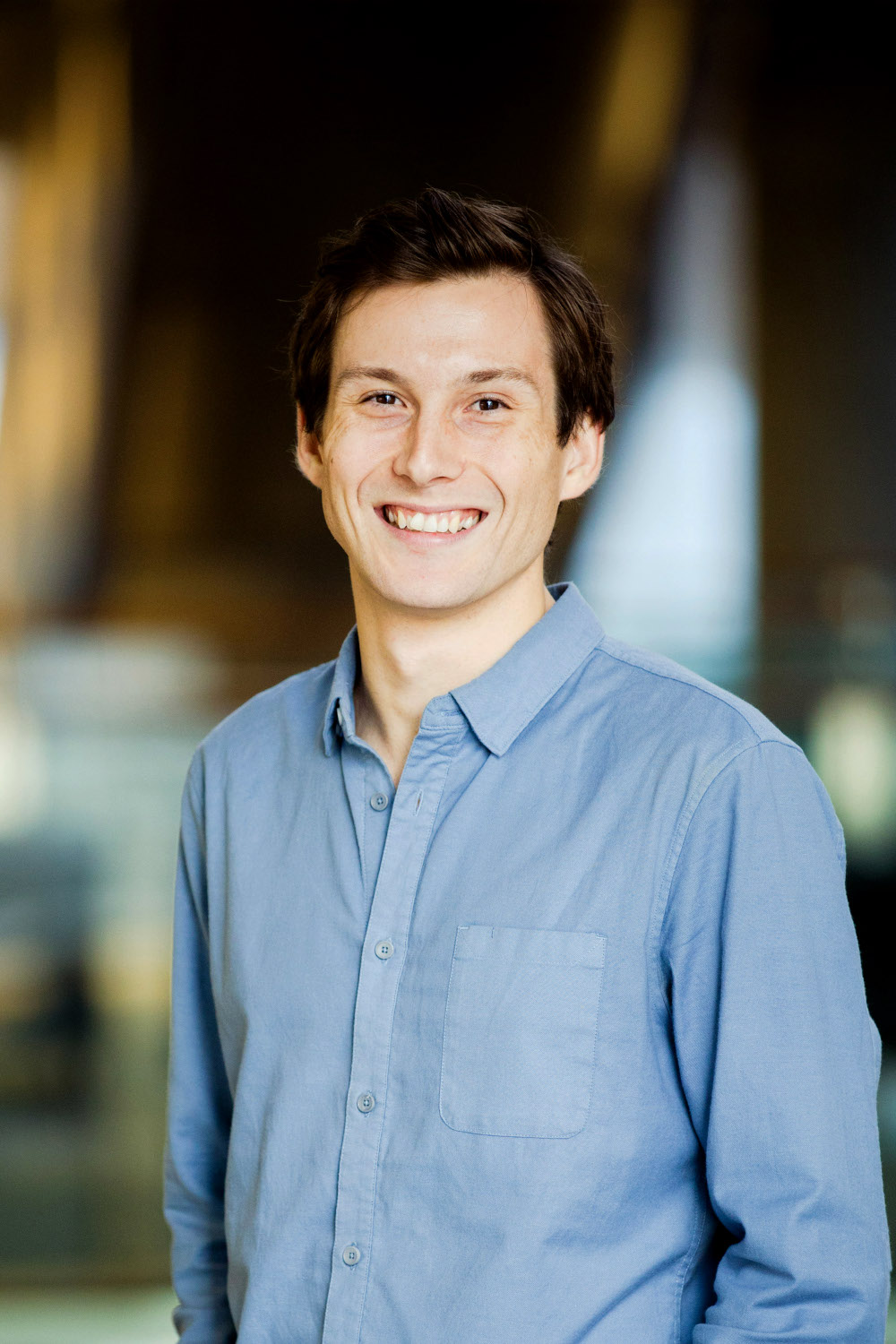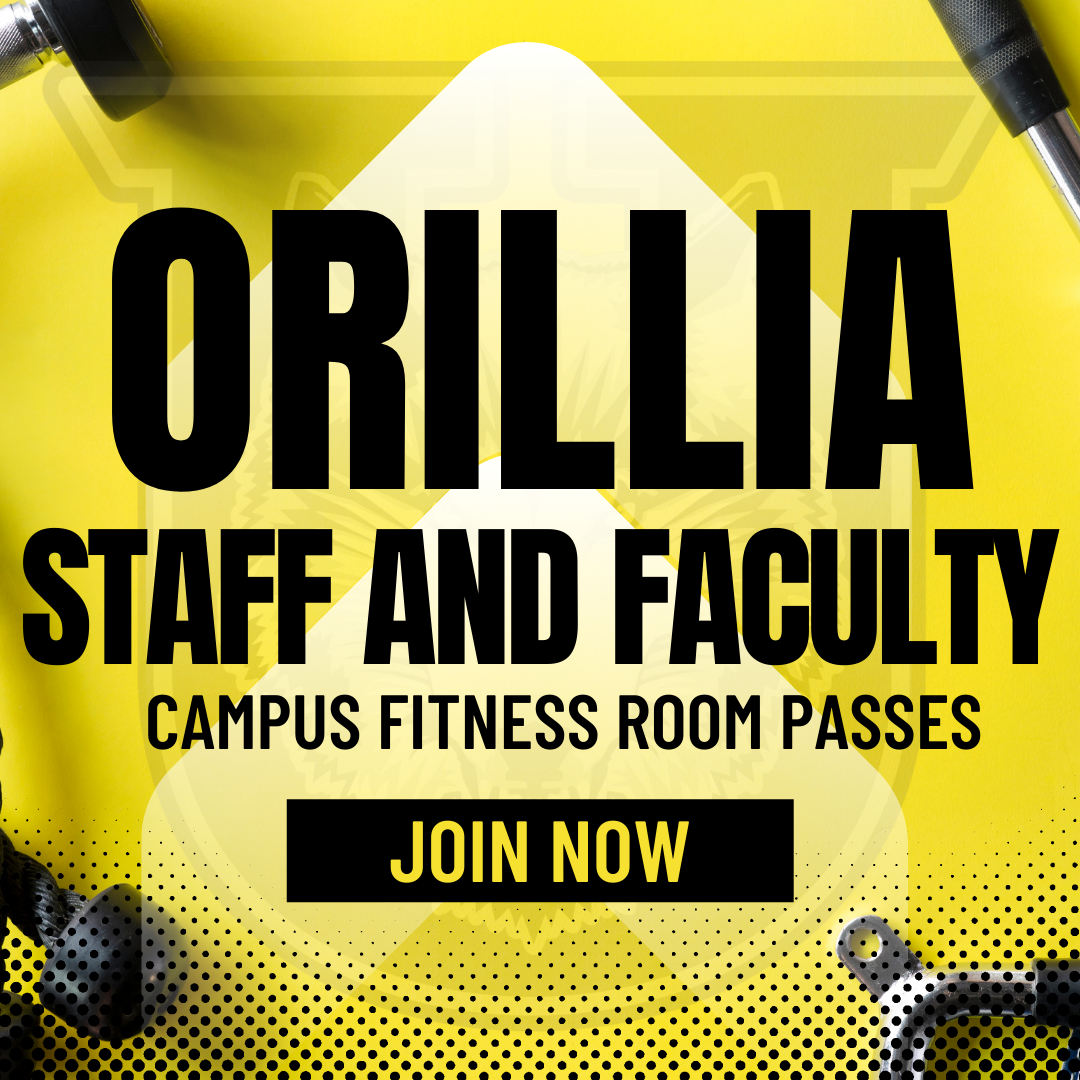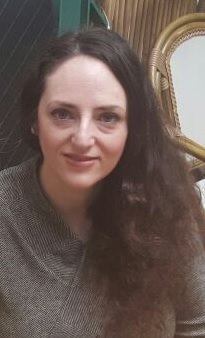Jessica Hayes' love of opera highlighted in this Shaw Spotlight video
Award-winning music student Jessica Hayes was featured in this Shaw Spotlight video.
Award-winning music student Jessica Hayes was featured in this Shaw Spotlight video.
Lakehead University is embarking on a 10-year initiative that will support the revitalization of Indigenous languages in and around the University.
This plan will reaffirm the University’s commitment to working alongside Indigenous communities as they revitalize those languages by providing an interactive and immersive experience.
The United Nations Education, Scientific and Cultural Organization has designated 2022 – 2032 as the Decade of Indigenous Languages.
“Indigenous languages are a basic human right recognized by the United Nations Declaration on the Rights of Indigenous Peoples,” said Denise Baxter, Lakehead’s Vice-Provost, Indigenous Initiatives.
“This plan is designed to provide institutional support for students, faculty, staff and Indigenous partner communities for language revitalization,” said Vicki Monague, a Lakehead University graduate student, founding member of Lakehead's United Nations Decade of Indigenous Languages committee and the plan’s author.
“It supports the development of fully fluent Indigenous speakers and will result in systemic support for linguistic and cultural justice for Indigenous Peoples,” she said.
The revitalization of Indigenous languages is a social movement, where everyone has a role whether they are Indigenous or non-Indigenous, a language learner or a non-language learner.
At Lakehead University, there are three Indigenous languages taught: Oji-cree, Cree, Ojibwe, with four dialects of Ojibwe: Eastern, Northern, Southwestern and Western. Lakehead held a kick-off celebration with Ojibwe Language Revitalization expert Dr. Anton Treuer, Ojibwe professor at Bemidji State University and author, on April 20.
At the Making a Decade of Action for Indigenous Languages meeting in Mexico City more than 500 participants from 50 countries passed the Los Pinos Declaration, which affirmed Indigenous Peoples’ rights to freedom of expression, to an education in their mother tongue and to participation in public life using their languages, as prerequisites for the survival of Indigenous languages, many of which are currently on the verge of extinction.
Sadly, Indigenous language loss is prevalent in Canada, where many communities no longer produce fluent first-language speakers.
“At Lakehead University, we are excited to respond to the Los Pinos Declaration on the Decade of Indigenous languages,” said Dr. Moira McPherson, Lakehead University’s President and Vice-Chancellor.
“This is a vital opportunity to continue building collaborative relationships with Indigenous Peoples here on Turtle Island. The best way to achieve justice for the experience of Indigenous Peoples in the Indian Day School System and the Indian Residential School system is to learn an Indigenous language.
“We hope our commitment to Indigenous language revitalization and our deep appreciation of Indigenous knowledges will result in creating, supporting and maintaining linguistic and cultural justice for the generations of today, and for those yet to come," Dr. McPherson added.
– 30 –
Media: For more information or interviews, please contact Brandon Walker, Media, Communications and Marketing Associate, at (807) 343-8110 ext. 8372 or mediarelations@lakeheadu.ca.
Lakehead University is a fully comprehensive university with approximately 9,700 full-time equivalent students and over 2,000 faculty and staff at two campuses in Orillia and Thunder Bay, Ontario. Lakehead has nine faculties, including Business Administration, Education, Engineering, Graduate Studies, Health & Behavioural Sciences, Law, Natural Resources Management, Science & Environmental Studies, and Social Sciences & Humanities. Lakehead University’s achievements have been recognized nationally and internationally, including being ranked, once again, among Canada’s Top 10 primarily undergraduate universities in Maclean’s 2021 University Rankings; as well as included in the top half of Times Higher Education's 2022 World Universities Rankings for the third consecutive year, and in the top 100 of 1,115 universities from around the world in THE's 2021 Impact Rankings (which assesses institutions against the United Nations’ 17 Sustainable Development Goals). Visit www.lakeheadu.ca.

Aria Kamal
April 19, 2022 – Thunder Bay, Ont.
Aria Kamal, from Barrie, Ont., has been named as one of the recipients of the Royal Society of Canada’s inaugural Justice Rosalie Silberman Abella Prize.
Kamal began advancing equality in her community through her involvement with Dress for Success, a charitable organization that empowers women to achieve economic independence, where she worked closely with clients by providing them with business attire and professional development training to secure meaningful employment.
She also led information workshops on financial literacy, professional networking and job retention skills.
“I am very honoured to have been selected as Lakehead University’s inaugural winner of the Justice Rosalie Silberman Abella Prize,” Kamal said.
“Throughout my time in law school, I have firmly grasped that effective advocates must learn to recognize the lived experiences of their clients to the best of their ability.
“While standard legal education curriculums do not mandate courses on social justice-based advocacy, I truly believe that students must develop social context awareness through increased involvement in pro bono placements, clinic work and community outreach initiatives during law school,” she said.
Kamal said she is grateful for the unique opportunities and experiences that she has had as a student in the Bora Laskin Faculty of Law.
“I hope that future generations of law students will continue to interrogate the role of socio-legal inequities within the law and strive to ameliorate discrepancies between equality in the books and equality in practice.”
During her three years at the Bora Laskin Faculty of Law, Kamal continued to build her impressive resume in the area of social justice and equality. In her first year, she provided pro bono legal support to women seeking separation from their abusive common-law spouses at the Northwestern Ontario Women’s Centre (NWOWC).
Kamal documented her experience at NWOWC in a two-part series for The Lawyer’s Daily, titled “Disproportionate Effects of Poverty on Divorced Women: An Access to Justice Issue” and “Covert Socio-legal Implications of Self-Representation in Smaller Communities.”
In addition, she taught a workshop emphasizing the need to integrate intersectional equality within lawyer practices at the Law Needs Feminism Because national forum.
In her second year of law school, Kamal was hired by Pro Bono Students of Canada as a case worker for its Family Justice Centre. In this role, she developed free public legal education resources to assist self-represented litigants with their family law proceedings. She also prepared court forms and organized free summary legal advice meetings between low-income clients and volunteer family law lawyers.
In the summer, Kamal worked as a student for the Law Commission of Ontario, where she interrogated the role of racial biases in predictive policing technologies and devised law reform recommendations in consultations with leading experts in the province.
In her third and final year of law school, Kamal completed her Practice Placement at the Canadian Civil Liberties Association, where she learned how to identify covert social inequalities in the law and how to provide just intervention to bring these issues to court.
Kamal has been a devoted volunteer throughout her law studies.
She was a Law Student Ambassador for the Ontario Bar Association-Student Section Executive, a Student Member at Large for the Ontario Bar Association-Women Lawyers Forum Executive, a Pro Bono Student for the Women’s Legal Education Action Fund, an Advisory Committee Member for Racism and Racial Discrimination for Lakehead University’s Office of Human Rights and Equity, and a volunteer for the Because I am a Girl: Speakers Bureau Member-PLAN Canada.
Please join the Bora Laskin Faculty of Law in congratulating Kamal on winning this prestigious prize. The Bora Laskin Faculty of Law is proud of her achievements, and recognizes the contributions of her fellow applicants, and all of the Faculty’s students in their collective commitment to social justice and equality.
The Royal Society of Canada established this prize in honour of Justice Rosalie Silberman Abella, a changemaker celebrated for her visionary intellectual contributions and commitment to building equality and equity across Canadian society and beyond.
During her distinguished career, Justice Abella has been responsible for many groundbreaking legal and judicial contributions. She chaired and authored the Ontario Study on Access to Legal Services by the Disabled in 1983 and was the sole Commissioner of the 1984 federal Royal Commission on Equality in Employment, creating the term and concept of “employment equity.”
She developed theories of “equality” and “discrimination” in her Royal Commission Report that were adopted by the Supreme Court of Canada in its first decision dealing with equality rights under the Canadian Charter of Rights and Freedoms in 1989. The report has been implemented by governments around the world.
The Justice Rosalie Silberman Abella Prize is presented annually to a graduating law student in each of the law schools in Canada who is most likely to positively influence equity and social justice in Canada or globally.
– 30 –
Media: For more information or interviews, please contact Brandon Walker, Media, Communications and Marketing Associate, at (807) 343-8110 ext. 8372 or mediarelations@lakeheadu.ca.
Lakehead University is a fully comprehensive university with approximately 9,700 full-time equivalent students and over 2,000 faculty and staff at two campuses in Orillia and Thunder Bay, Ontario. Lakehead has nine faculties, including Business Administration, Education, Engineering, Graduate Studies, Health & Behavioural Sciences, Law, Natural Resources Management, Science & Environmental Studies, and Social Sciences & Humanities. Lakehead University’s achievements have been recognized nationally and internationally, including being ranked, once again, among Canada’s Top 10 primarily undergraduate universities in Maclean’s 2021 University Rankings; as well as included in the top half of Times Higher Education's 2022 World Universities Rankings for the third consecutive year, and in the top 100 of 1,115 universities from around the world in THE's 2021 Impact Rankings (which assesses institutions against the United Nations’ 17 Sustainable Development Goals). Visit www.lakeheadu.ca
Dr. Vicki Kristman
April 14, 2022
THUNDER BAY — The Ontario government is working for workers by investing $5.5 million in ground-breaking workplace health and safety research led by the Enhancing Prevention of Injury and Disability @ Work (EPID@Work) Research Institute at Lakehead University. The funding will contribute to the Institute’s leading research in several key areas including, reducing mental health stigma in the workplace and designing injury prevention programs for vulnerable workers in Northwestern Ontario.
“Every worker in Northern Ontario should feel safe and supported on the job, and they deserve to come home safe to their loved ones after a hard day’s work,” said Monte McNaughton, Minister of Labour, Training and Skills Development. “Our government is working for workers by proudly investing in the EPID@Work Research Institute at Lakehead University so they can deliver solutions that will create lasting improvements to worker safety.”
Research shows vulnerable workers are often at increased risk of workplace injury as they face challenges accessing conventional workplace health and safety resources and training. EPID@Work’s research will aim to identify and address these barriers.
As part of this five-year project, the EPID@Work Research Institute will help employers in Northern Ontario reduce mental health stigma in their workplaces, improve support for workers, and ensure managers have the tools for the early identification of mental health symptoms. The funding will also contribute to ongoing research to understand Indigenous workers’ experiences in Northern Ontario workplaces to provide them with better mental health support and prevent injuries on the job.
“Lakehead University is excited for the significant, long-term investment by the Ministry of Labour, Training and Skills Development in Dr. Kristman’s research and the EPID@Work Research Centre,” said Dr. Moira McPherson, President and Vice-Chancellor of Lakehead University. “Focussing on Northern Ontario’s workforce, with emphasis on Indigenous communities and equity seeking groups, the Center will conduct high-quality, community-based, transdisciplinary research in the areas of work-related injury, both physical and mental, and disability prevention.”
This investment is part of the government’s plan to build a future where Ontario is the best place to live, work and raise a family. This includes recently passing new legislation that provides historic new protections for workers, as well as releasing the province’s five-year health and safety strategy, Prevention Works.
Quick Facts
Additional Resources
-30-
|
|
MEDIA CONTACTS Harry Godfrey | ontario.ca/labour-news |
Ciara Nardelli |
|
From left, Philip Duke, Matthew Scott, Damien Grayda, Paul Graham, Felix Lasalle, and Cory Hubbard
(technologist), Dr. Yanglin Gong (faculty advisor) won first place at the regional competition.
April 13, 2022 – Thunder Bay, Ont.
The team representing Lakehead Engineering has won first place overall at the Student Steel Bridge Regional Competition held in Illinois April 7 to 9, organized by the American Institute of Steel Construction (AISC) and the American Society of Civil Engineers (ASCE).
This year’s competition included eight categories: aesthetics, construction speed, lightness, stiffness, construction economy, structural efficiency, cost estimation, and overall performance. Lakehead’s team placed first in seven of the eight categories and came second in the other category.
Dr. Yanglin Gong and technologist Cory Hubbard supervised the team, comprised of fourth-year Civil Engineering students Damien Grayda, Paul Graham, Philip Duke, Felix Lasalle, and Matthew Scott.
The Lakehead Engineering team won the competition for Western Great Lakes region, hosted at the University of Illinois at Urbana-Champaign. They were the only Canadian university in this regional competition that featured over 400 students from 13 American universities.
Dr. Juan Pernia was faculty advisor for the ASCE student chapter. Technologists Morgan Ellis, Kailash Bhatia and Stefanie Stangier also acted as machinist advisors to the team. Josh Fiegehen, representing the student chapter, participated in symposiums and presented a technical paper.
“The whole Lakehead Engineering team has made us proud,” said Dr. Janusz Kozinski, Lakehead’s Dean of Engineering.
“It is an extraordinary achievement that demonstrates the excellence of our students with the support of all their supervisors. We will be cheering for them at the Nationals next month,” Dr. Kozinski said.
The annual Student Steel Bridge Competition, which began in 1987, challenges student teams to develop a 20-foot-long steel bridge to fit a given hypothetical environment.
Each team must determine how to design and fabricate a bridge and then plan for an efficient assembly under timed construction at the competition. Bridges are then load-tested and weighed.
After triumphing in the regional competition, Lakehead’s team will go up against top universities from across North America in the National Finals from May 27-28 at Virginia Tech in Blacksburg, Virginia.
– 30 –
Media: For more information or interviews, please contact Brandon Walker, Media, Communications and Marketing Associate, at (807) 343-8110 ext. 8372 or mediarelations@lakeheadu.ca.
Lakehead University is a fully comprehensive university with approximately 9,700 full-time equivalent students and over 2,000 faculty and staff at two campuses in Orillia and Thunder Bay, Ontario. Lakehead has nine faculties, including Business Administration, Education, Engineering, Graduate Studies, Health & Behavioural Sciences, Law, Natural Resources Management, Science & Environmental Studies, and Social Sciences & Humanities. Lakehead University’s achievements have been recognized nationally and internationally, including being ranked, once again, among Canada’s Top 10 primarily undergraduate universities in Maclean’s 2021 University Rankings; as well as included in the top half of Times Higher Education's 2022 World Universities Rankings for the third consecutive year, and in the top 100 of 1,115 universities from around the world in THE's 2021 Impact Rankings (which assesses institutions against the United Nations’ 17 Sustainable Development Goals). Visit www.lakeheadu.ca.
Two Lakehead University professors are each receiving significant research funding from the Social Sciences and Humanities Research Council of Canada. In total, the amount represents more that $470,000 of funding.
Dr. Jian Deng from Civil Engineering is receiving a $237,970 grant under SSHRC’s New Frontiers in Research Fund: special call on innovative approaches to research in the pandemic context.

Over one year, Dr. Deng and his team will explore new approaches in probabilistic slope stability analysis, which is how a civil engineer examines if the angle of a slope in a roadway, bridge or dam will result in that structure failing.
During the COVID-19 pandemic, traffic volumes to collect soil sampling have been cut down by road closures. The access to laboratories, libraries, and archives has also been limited to very few personnel and very short periods of time.
“The objective of this proposal is to explore novel approaches in probabilistic slope stability analysis and design under small, censored samples due to the pandemic,” Dr. Deng said.
This research will contribute significantly to the advancement of knowledge and technologies associated with probabilistic slope analysis and design. Enhanced understanding of the slope failure mechanism will inform protocols and measures, by proper soil stabilization measures, to avoid slope disasters.
This research will benefit the construction and excavation industries in Canada.
Dr. Nicholas Ravanelli from Kinesiology is also receiving a one-year grant under SSHRC’s New Frontiers in Research Fund: special call on innovative approaches to research in the pandemic context – for $237,730.

Dr. Ravanelli and his team will examine the way vulnerable people behave and their physiological responses to heat waves.
“The rise in mortality during heat waves primarily occurs at-home rather than in-hospital or medically supervised settings,” Dr. Ravanelli said.
“This highlights the urgent need to evaluate how human behaviour and physiological responses to heat stress in personal dwellings increases the risk for heat-related complications.”
Advancements in wearable sensors, web applications, and internet-connected devices offer a unique opportunity to transform traditional data collection equipment to monitor the indoor and outdoor environmental conditions along with each person’s behavioural and physiological responses in real-time during heat waves.
The transition from laboratory to an at-home data collection approach is timely – since the COVID-19 pandemic has resulted in limitations to patient-engaged research.
Dr. Ravanelli said these at-home environmental and health monitoring solutions may identify the primary factors influencing heat-related complications in vulnerable populations and provide greater telemedicine diagnostic precision for individuals who lack immediate access to health-care services.
“This could potentially enable early detection for heat-related complications and personalize resilience strategies during heat waves,” he said.
Dr. Andrew P. Dean, Lakehead’s Vice-President, Research and Innovation, congratulated both researchers and thanked SSHRC for this valuable funding.
“Research has continued during the pandemic and new avenues for research projects have emerged,” Dr. Dean said.
“Both of these projects are timely and very applied as we continue to see how research helps society to deal with the direct and indirect effects of the pandemic.”
– 30 –
Media: For more information or interviews, please contact Brandon Walker, Media, Communications and Marketing Associate, at (807) 343-8110 ext. 8372 or mediarelations@lakeheadu.ca.
Lakehead University is a fully comprehensive university with approximately 9,700 full-time equivalent students and over 2,000 faculty and staff at two campuses in Orillia and Thunder Bay, Ontario. Lakehead has nine faculties, including Business Administration, Education, Engineering, Graduate Studies, Health & Behavioural Sciences, Law, Natural Resources Management, Science & Environmental Studies, and Social Sciences & Humanities. Lakehead University’s achievements have been recognized nationally and internationally, including being ranked, once again, among Canada’s Top 10 primarily undergraduate universities in Maclean’s 2021 University Rankings; as well as included in the top half of Times Higher Education's 2022 World Universities Rankings for the third consecutive year, and in the top 100 of 1,115 universities from around the world in THE's 2021 Impact Rankings (which assesses institutions against the United Nations’ 17 Sustainable Development Goals). Visit www.lakeheadu.ca.
All staff and faculty at the Orillia campus can now purchase term or year round passes to access the on campus fitness room, located on the first floor of the residence building.
Spring/summer passes are available for $22 plus tax and are valid May through August. Fall and winter term passes are available for $32 plus tax for term passes (three months), or pay $96 plus tax for year round access. Payments can be made at the Athletics offices, OR 1015 or OR 1017, Monday through Friday, 8:30 am to 4:30 pm.
To register for your pass, please complete the fitness room Risk and Liability waiver. This waiver is mandatory for activation of your pass.
For more information, please visit www.orilliathunderwolves.ca.


Dr. Mirit Grabarski, Assistant Professor of Human Resources and Organizational Behaviour in the Faculty of Business Administration, was awarded the Best PhD Dissertation in HR Award from the Human Resources Research Institute (HRRI).
This award is granted to one recent PhD graduate from a Canadian PhD program in recognition of excellent research in the field of human resources.
Dr. Grabarski graduated from the Ivey School of Business at Western in 2021 before joining Lakehead University in August. In her dissertation she studied career empowerment, which embodies motivation for career-related behaviours. The dissertation is a multi-study project that employs mixed research methods to build the construct of career empowerment, create and validate a measure for it, and finally test its ability to predict a wide range of career-related variables such as objective and subjective career success.
Press play above for a thank you video from Lakehead University.
National Volunteer Week is April 24-30. This week is set aside each year to recognize and thank volunteers throughout Canada for the time and energy they contribute to causes that benefit our communities.
The National Volunteer Week theme for 2022, Volunteering is Empathy in Action, affirms the strong connection between volunteerism and empathy. This profoundly human connection is at the heart of healthier individuals and stronger communities.
Empathy is a quality that can help people relate to others and build awareness around different experiences. It connects people in ideas and actions and helps create bonds forged in common goals and aspirations. From coast to coast to coast in formal and informal settings, volunteers create caring, collaborative, and compassionate communities.
During National Volunteer Week 2022, we celebrate the contributions of Lakehead University’s Volunteers: for their actions, their understanding, and their generous support for our Lakehead University communities.
Our fourth LELS GSA research spotlight focuses on Amber Fedus, an MSc Student in Biology.
Amber's research investigates how the human-induced removal of aquatic macrophytes (what we humans might consider "weeds" and shoreline vegetation) affect lake ecosystems, particularly the plankton and fish within those lakes.
In her spotlight, Amber shares stories about her research and path to academia, as well as advice for young Indigenous scholars from her perspective of growing up in Iskatewizaagegan #39 IFN in Treaty 3 outside of Kenora, Ont. To read all about it, visit Amber's spotlight here.